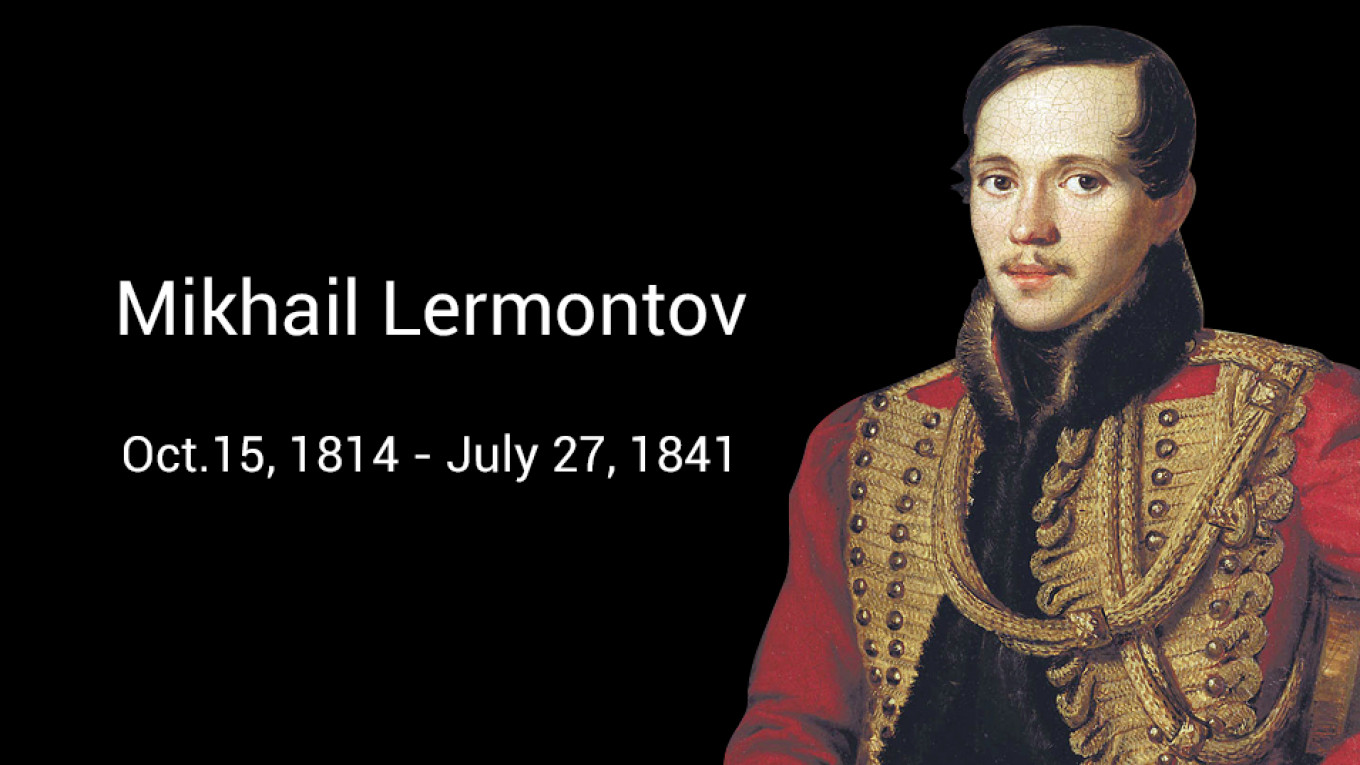
Mikhail Lermontov was born on Oct. 15, 1814 in Moscow to a noble military family. When he was three years old, his mother died of tuberculosis and Mikhail’s father sent him to live with his grandmother in Tarkhany in southwest Russia where he would spend most of his childhood. His grandmother provided a lavish lifestyle and education for Lermontov, replete with foreign tutors, musical instruments, and painting lessons. Medical problems as a child sent him to the Caucasus, which he would admire and write about throughout his life.
At the age of 12, Lermontov moved to Moscow to attend a boarding school for the nobility. He was a stellar student. His interest in Russian literature and the English poet Lord Byron developed during this time, as did his poetic talents and biting irony. When he entered Moscow State University in 1830 as a philology student, he was excluded from student intellectual circles due to his arrogant, abrasive personality.
When his father died, Lermontov considered suicide but turned to poetry. He wrote some of his best-known verses around this time, including “The Sail,” “Angel of Death,” and “The Hussar.” But he withdrew from the university after only two years of study because he had offended his professors too much to pass upcoming exams.
Lermontov moved to Petersburg, where he attended a prestigious military school from 1832-1834. He became a hussar in the imperial guard and led a busy life in high society, while cultivating his literary aspirations in private. His first published poem was “Khadji-Abrek” in 1835, but he also finished “Demon,” “Boyarin Orsha,” “The Tambov Treasurer’s Wife” and his best-known drama, “Masquerade.” Throughout the arc of his literary career, Lermontov’s writing underwent a shift from romanticism to realism, exemplified by his epic poem “Borodino” in 1837. In that year the great poet Alexander Pushkin died, which provoked a nervous breakdown in Lermontov, although he didn’t know the poet personally. This event inspired his poem “Death of the Poet,” which enhanced Lermontov’s own literary fame.
Lermontov was arrested and relocated to a regiment in the Caucasus for his criticism of the monarchy. There he travelled, learned local languages, and joined the intellectual circle of the Georgian Romantic poet Alexander Chavchavadze. Lermontov’s time in the Caucasus inspired poetry about the region that expanded his fame back home. When he returned to the aristocratic circles of Russia, he was treated as a celebrity. The literary magazine Otechestvennye Zapiski serialized his novel, “Hero of Our Time” over the course of 1839-1840.
In 1841 in the Caucasus town of Pyatigorsk, he was challenged to a duel by his military schoolmate Nikolai Martynov because Lermontov had mocked him for mimicking a romantic hero. Two days later, the duel took place at the foot of the Mashuk mountain: Martynov fired the first shot through the poet’s heart, killing him immediately. His burial occurred three days later and was attended by thousands of people. Later the tsar allowed Lermontov’s remains to be reburied in the family cemetery in Tarkhany.
After his death, many of the poet’s verses were discovered in his notebooks and most of his poetry was published posthumously. Although his literary career spanned roughly six years, Lermontov produced 30 large poems, 600 minor ones, a novel, and five dramas.






